
Huelva: The Hidden Gem of Andalusia
Nestled on the southwestern coast of Spain, Huelva is a captivating city that boasts a rich history and vibrant culture. Known for its beautiful beaches, delicious seafood, and warm, welcoming inhabitants, Huelva offers an authentic Spanish experience away from the bustling tourist crowds of larger cities. Huelva's historical significance is unparalleled. It is famously linked to Christopher Columbus, who set sail from the nearby port of Palos de la Frontera on his voyage to the New World. The city’s monuments, such as the Monastery of La Rábida and the Muelle de las Carabelas, offer a glimpse into this fascinating past. Visitors can explore these sites to learn more about the history that shaped not only Spain but the entire world. Nature lovers will find plenty to admire in Huelva. The city is surrounded by stunning natural parks like Doñana National Park, one of Europe's most important wetlands, home to a variety of wildlife including the endangered Iberian lynx. For those who prefer the coast, Huelva's pristine beaches, such as Playa de Punta Umbría and Playa de Mazagón, are perfect for sunbathing, swimming, and water sports. Food enthusiasts will delight in Huelva's culinary offerings. The city is renowned for its fresh seafood, particularly the white prawns and Iberian ham. Local markets and restaurants serve up mouth-watering dishes that reflect the region's rich culinary heritage. Pair your meal with a glass of local wine for a truly unforgettable dining experience.
Local tips in Huelva
- Visit the Monastery of La Rábida to learn about Columbus' voyages.
- Spend a day at Doñana National Park for wildlife spotting and nature trails.
- Try the local white prawns and Iberian ham at any traditional restaurant.
- Explore the Muelle de las Carabelas to see replicas of Columbus' ships.
- Head to Playa de Punta Umbría for a relaxing day at one of Huelva's best beaches.
Huelva: The Hidden Gem of Andalusia
Nestled on the southwestern coast of Spain, Huelva is a captivating city that boasts a rich history and vibrant culture. Known for its beautiful beaches, delicious seafood, and warm, welcoming inhabitants, Huelva offers an authentic Spanish experience away from the bustling tourist crowds of larger cities. Huelva's historical significance is unparalleled. It is famously linked to Christopher Columbus, who set sail from the nearby port of Palos de la Frontera on his voyage to the New World. The city’s monuments, such as the Monastery of La Rábida and the Muelle de las Carabelas, offer a glimpse into this fascinating past. Visitors can explore these sites to learn more about the history that shaped not only Spain but the entire world. Nature lovers will find plenty to admire in Huelva. The city is surrounded by stunning natural parks like Doñana National Park, one of Europe's most important wetlands, home to a variety of wildlife including the endangered Iberian lynx. For those who prefer the coast, Huelva's pristine beaches, such as Playa de Punta Umbría and Playa de Mazagón, are perfect for sunbathing, swimming, and water sports. Food enthusiasts will delight in Huelva's culinary offerings. The city is renowned for its fresh seafood, particularly the white prawns and Iberian ham. Local markets and restaurants serve up mouth-watering dishes that reflect the region's rich culinary heritage. Pair your meal with a glass of local wine for a truly unforgettable dining experience.
When is the best time to go to Huelva?
Iconic landmarks you can’t miss
Muelle de Riotinto
Explore the historical beauty of Muelle de Riotinto in Huelva, Spain - a scenic landmark blending rich mining history and lush park surroundings.
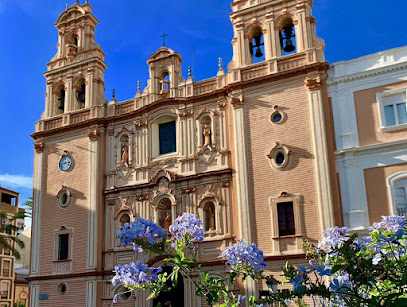
Monumento a Colón
Discover the Monumento a Colón in Huelva, a monumental tribute to Christopher Columbus set against a picturesque river landscape.
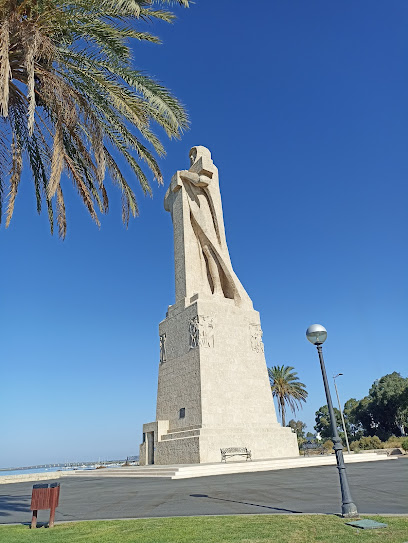
Columbus House
Discover the legacy of Columbus at the historic Columbus House in Huelva, where maritime adventure and rich history converge.
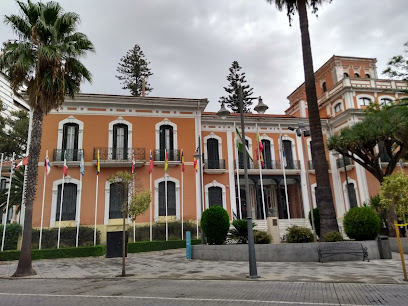
Monumento a la Virgen del Rocío
Explore the Monument to the Virgen del Rocío, a stunning sculpture in Huelva, symbolizing devotion and cultural heritage in southern Spain.
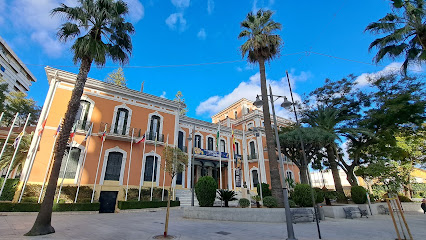
Estatua de Cristóbal Colón
Explore Huelva's history through the majestic Statue of Christopher Columbus, a symbol of adventure and exploration.
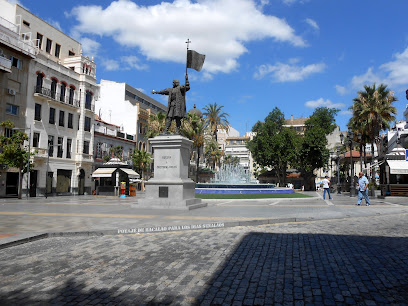
Plaza de las Monjas
Explore the vibrant Plaza de las Monjas in Huelva, a historical landmark filled with culture, local cuisine, and lively events that reflect the spirit of Spain.
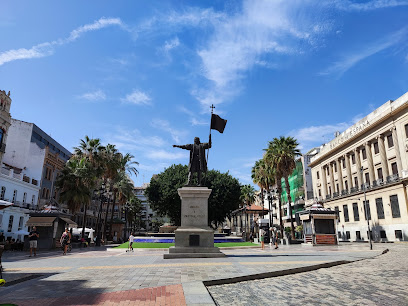
Museo de Huelva
Explore the depths of history at Museo de Huelva, an archaeological gem showcasing the rich heritage and culture of the Andalusian region.
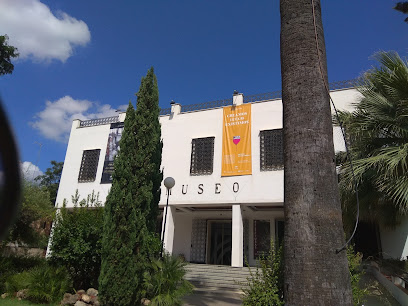
Plaza de las Monjas Huelva
Discover the charm of Plaza de las Monjas, Huelva's vibrant historical landmark, where culture, cuisine, and captivating architecture converge.
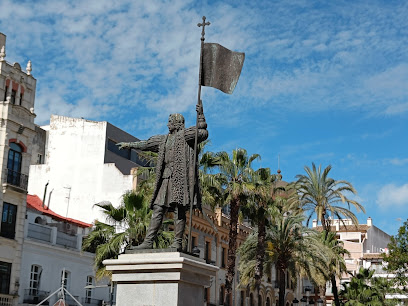
Barrio Obrero
Explore Barrio Obrero, a historical landmark in Huelva, Spain, showcasing vibrant culture, unique architecture, and rich local history.
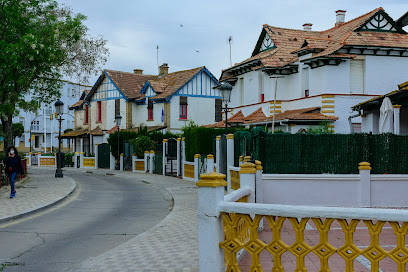
Mora Claros Palace
Explore the exquisite Mora Claros Palace in Huelva, a historical landmark and heritage museum showcasing rich cultural heritage and stunning architecture.
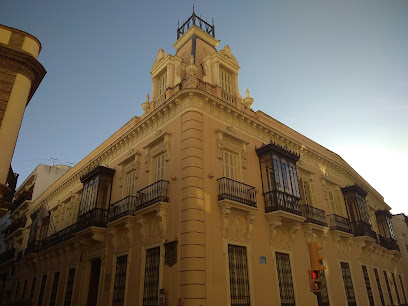
Monumento a los Descubridores
Discover the rich maritime history at the Monumento a los Descubridores, a stunning tribute to the explorers who changed our world forever.
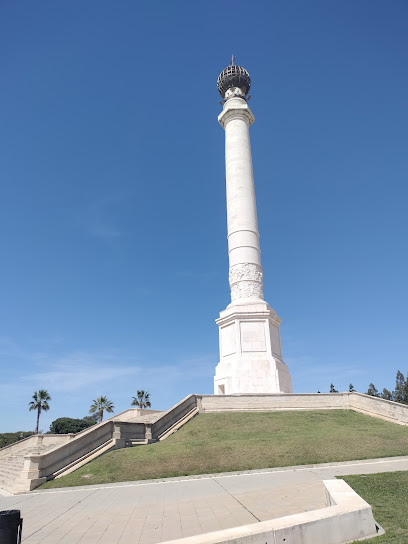
Santuario De Nuestra Señora De La Cinta
Experience the spiritual and cultural essence at Santuario De Nuestra Señora De La Cinta, a serene shrine in Huelva, Spain, renowned for its stunning architecture.
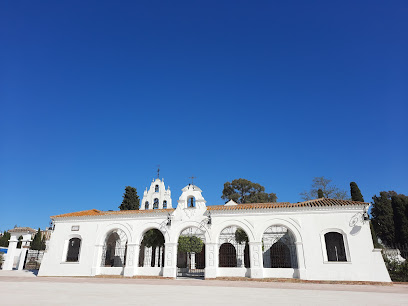
Muelle Garden
Discover Muelle Garden, a peaceful park in Huelva offering lush landscapes, vibrant flora, and a serene atmosphere for relaxation and leisure.
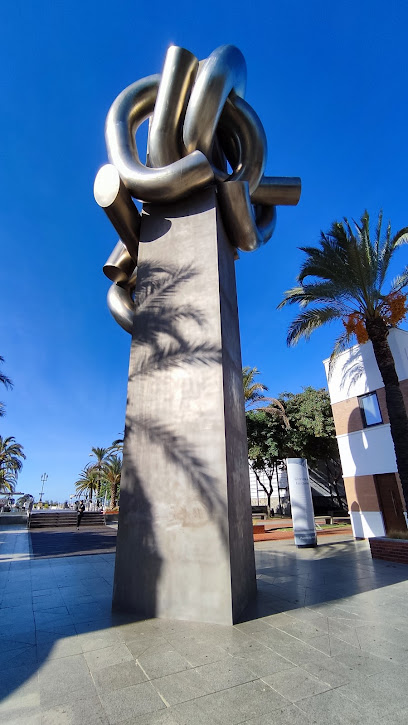
Fuente Vieja
Explore the historical charm of Fuente Vieja, a beautiful landmark in Huelva that embodies the city's rich culture and enticing culinary scene.
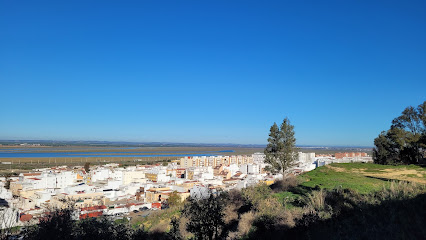
Castillo de Moguer
Discover the Castillo de Moguer, a historic castle in Spain that offers breathtaking views and a rich tapestry of medieval history.
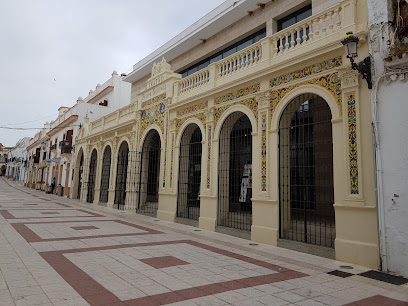
Unmissable attractions to see
Muelle de las Carabelas
Explore the historic Muelle de las Carabelas, home to Columbus's ships and a treasure trove of maritime history in Palos de la Frontera.
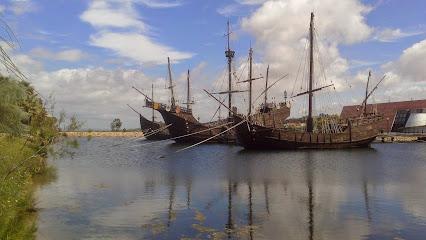
Muelle de Riotinto
Discover the enchanting Muelle de Riotinto in Huelva, where natural beauty meets rich historical heritage in a serene park setting.
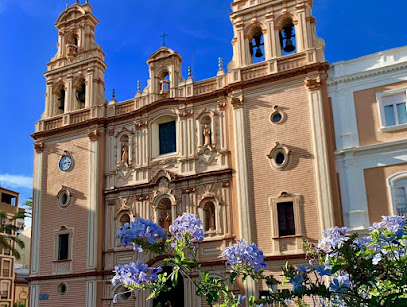
La Rabida Monastery
Discover La Rabida Monastery, a historical treasure in Palos de la Frontera, connecting you to Columbus's legacy amidst stunning architecture and serene landscapes.
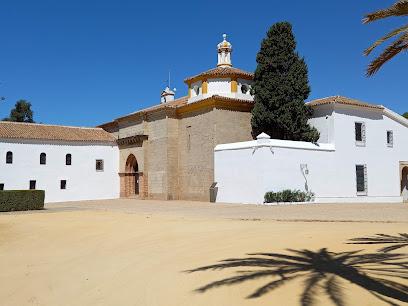
Camping Doñana Mazagón
Discover the serene beauty and adventure of Camping Doñana Mazagón, your gateway to nature and relaxation in southern Spain.

Paseo de la Ría
Experience the charm of Huelva at Paseo de la Río, a stunning waterfront promenade perfect for strolls, dining, and local culture.
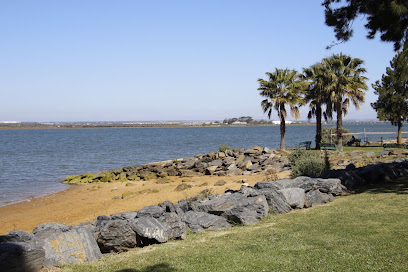
Moret Park
Explore the tranquility and beauty of Moret Park, an urban oasis in Huelva, Spain, perfect for relaxation and family fun.
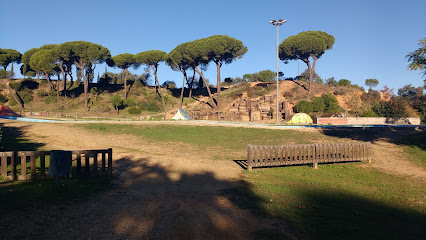
Matalascañas Beach
Discover the natural beauty and vibrant atmosphere of Matalascañas Beach, a stunning destination on the southern coast of Spain.
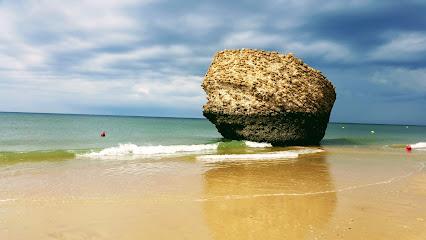
Centro de Visitantes El Acebuche
Explore the wonders of Doñana National Park at Centro de Visitantes El Acebuche, your gateway to nature's breathtaking beauty.

Marina Vila Real de Santo António
Explore the tranquil beauty and vibrant atmosphere of Marina Vila Real de Santo António, the perfect destination for relaxation and adventure in Portugal.
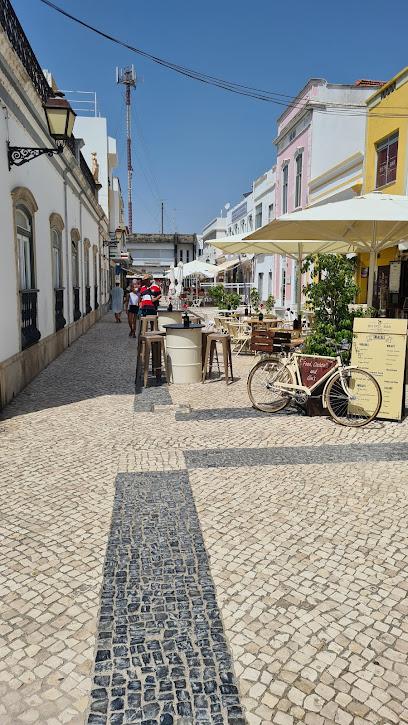
Monumento a la Virgen del Rocío
Discover the Monumento a la Virgen del Rocío, a stunning sculpture in Huelva, celebrating the rich cultural and religious traditions of Andalusia.
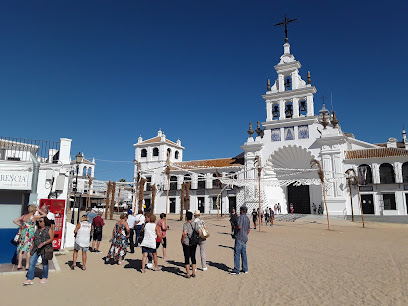
Zafra Park
Explore the serene beauty of Zafra Park in Huelva, a perfect urban getaway with lush gardens, scenic paths, and vibrant community events.
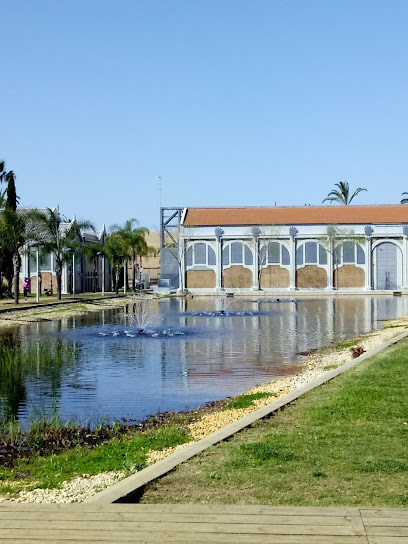
Puerto Deportivo Marina Isla Canela
Discover Puerto Deportivo Marina Isla Canela, a vibrant marina in Huelva offering breathtaking views, culinary delights, and thrilling water activities for every traveler.
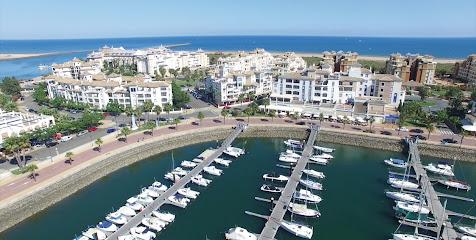
Centro de Visitantes Palacio del Acebrón
Explore the wonders of Doñana National Park at the Centro de Visitantes Palacio del Acebrón, your gateway to Spain's breathtaking natural heritage.

Parador's Beach, Mazagón
Experience the breathtaking beauty of Parador's Beach in Mazagón, where golden sands meet crystal-clear waters for an unforgettable getaway.
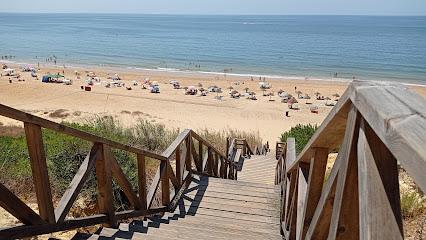
Estatua de Cristóbal Colón
Discover the Statue of Cristóbal Colón in Huelva - a captivating tribute to exploration amidst vibrant local culture.
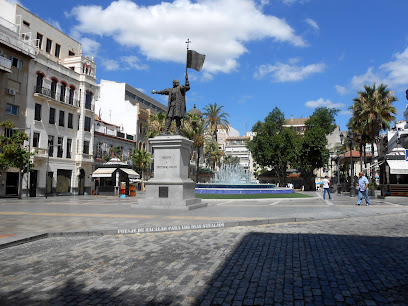
Essential places to dine
La Mafia se sienta a la mesa
Experience authentic Italian flavors at La Mafia se sienta a la mesa in Huelva - where every dish tells a story.
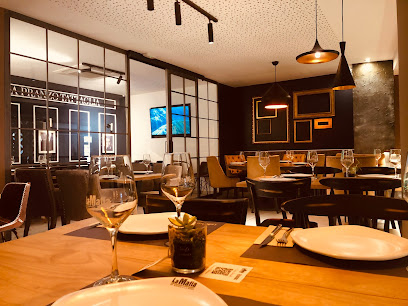
Bar Restaurante Juan José
Experience authentic Spanish cuisine at Bar Restaurante Juan José in Huelva - where flavors come alive in a welcoming atmosphere.
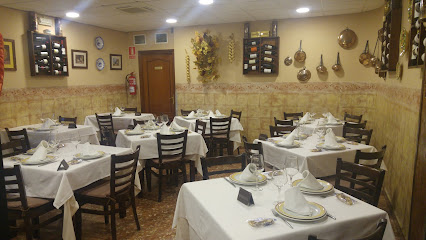
Restaurante Azabache
Discover the heart of Andalusian cuisine at Restaurante Azabache in Huelva - where tradition meets flavor in every delightful bite.
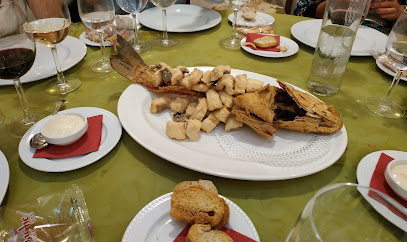
Bar La Tribu
Experience authentic Spanish tapas at Bar La Tribu - a vibrant eatery in Huelva offering delicious flavors in a lively atmosphere.
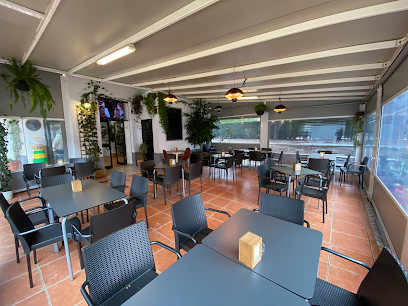
La Pinta .Huelva
Savor authentic Spanish tapas and delightful churros at La Pinta in Huelva—a culinary haven for food lovers.
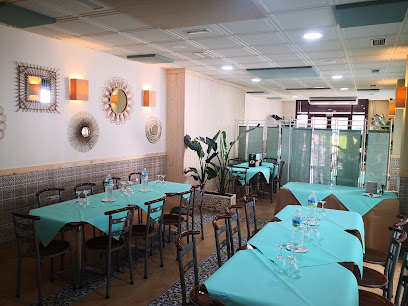
Kalaka Vinos y Tapas
Experience authentic Spanish tapas at Kalaka Vinos y Tapas in Huelva, where flavor meets tradition in a vibrant atmosphere.
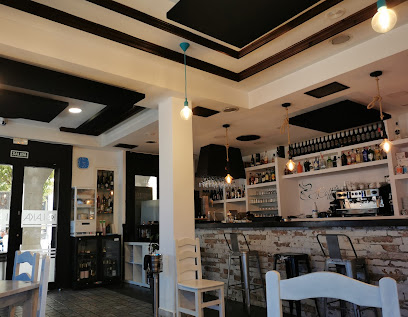
Restaurante Portichuelo
Discover the authentic taste of Andalusian cuisine at Restaurante Portichuelo - where every dish tells a story.
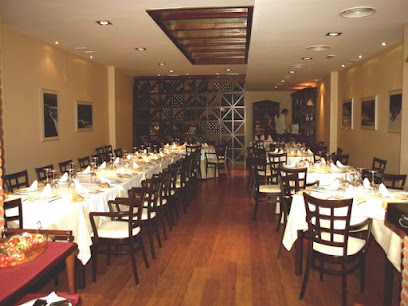
La casa del guarda - Huelva
Discover La Casa del Guarda: A must-visit tapas bar in Huelva offering authentic Spanish cuisine and cozy ambiance.
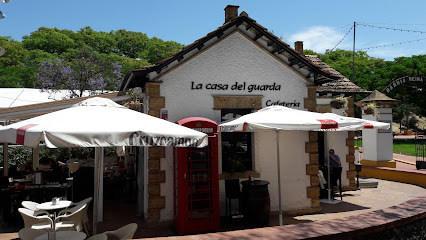
Bar Pappis
Experience authentic Andalusian flavors at Bar Pappis in Huelva – your go-to destination for delicious tapas and vibrant atmosphere.
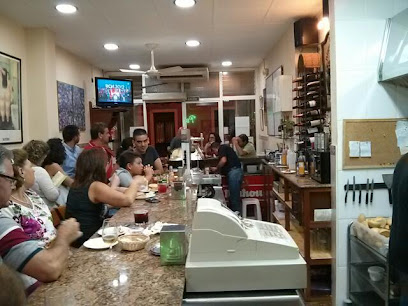
Restaurante Don Quijote
Experience the rich flavors of Mediterranean cuisine at Restaurante Don Quijote in Huelva, where grill delights await every palate.
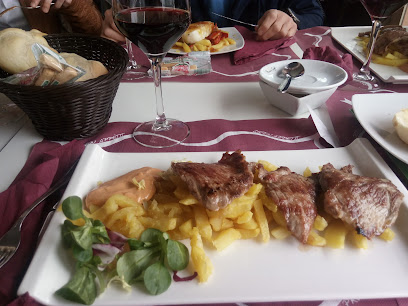
Rosalia La Ratona
Experience culinary creativity at Rosalia La Ratona in Huelva – where art meets gastronomy in a delightful dining adventure.
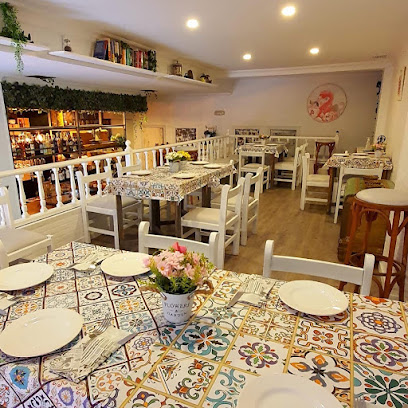
Masero - restaurante
Experience authentic Mediterranean cuisine at Masero in Huelva—where every dish tells a story of flavor and tradition.
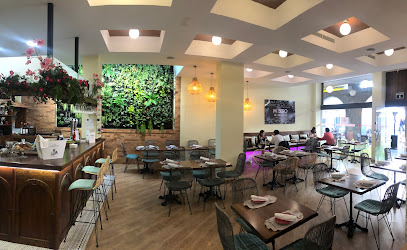
Royal Tandoori Indian Restaurant
Experience authentic Indian cuisine at Royal Tandoori in Huelva - where rich flavors meet warm hospitality.
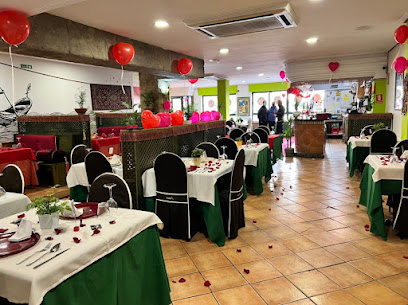
Bar La Estrella
Discover the essence of Spanish cuisine at Bar La Estrella in Huelva - a lively tapas bar serving delicious dishes in an inviting atmosphere.
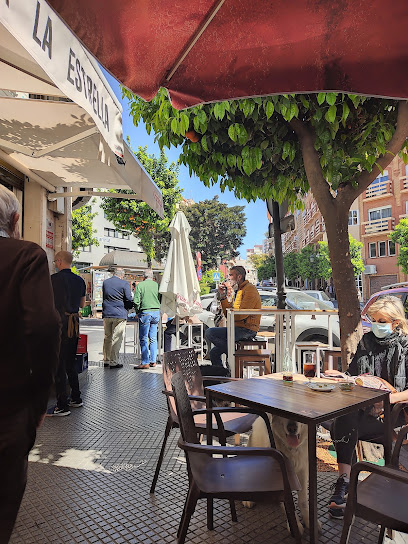
Sibuya Urban Sushi Bar
Experience exquisite sushi at Sibuya Urban Sushi Bar in Huelva – where tradition meets modern culinary artistry.
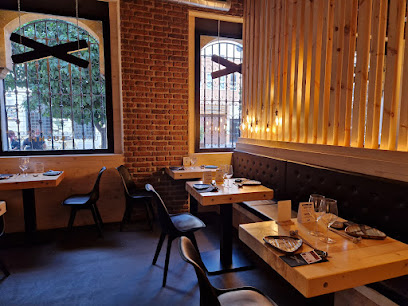
Markets, malls and hidden boutiques
Holea Shopping Center
Explore the Holea Shopping Center in Huelva for an unforgettable shopping and dining experience with a local flair.
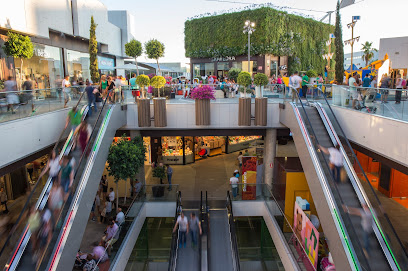
Primark
Discover affordable fashion and trendy styles at Primark in Huelva’s Centro Comercial Holea, your ultimate shopping destination.

The Red Lion (Irish pub) - Huelva
Discover the lively ambiance of The Red Lion, an Irish pub in Huelva offering cocktails, live music, and a perfect spot for socializing.
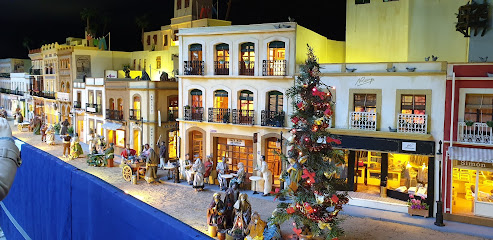
Galerias Madrid
Explore Galerias Madrid, Huelva's premier fabric store, offering a rich variety of textiles, linens, and crafting essentials for every creative mind.

Flying Tiger Copenhagen
Explore the whimsical world of Flying Tiger Copenhagen, where unique gifts and vibrant home goods await in the heart of Huelva.
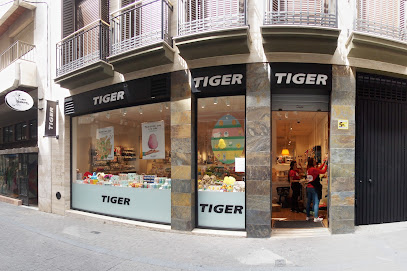
GAME Tres Agosto
Discover the ultimate gaming haven at GAME Tres Agosto, where video games, electronics, and collectibles await every enthusiast.
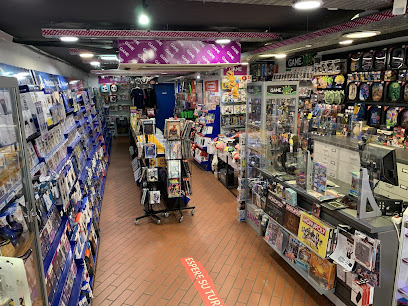
Zavers
Explore Zavers, the enchanting gift shop in Huelva, where unique souvenirs and local artistry meet for a memorable shopping experience.
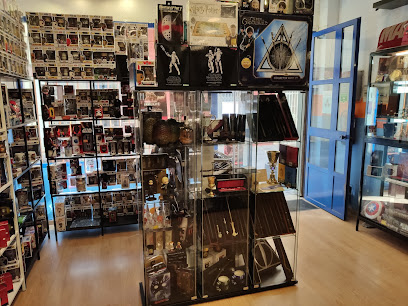
Bazar Mayca
Explore Bazar Mayca in Huelva, your one-stop shop for unique gifts, local crafts, and delightful souvenirs that embody the essence of Spanish culture.
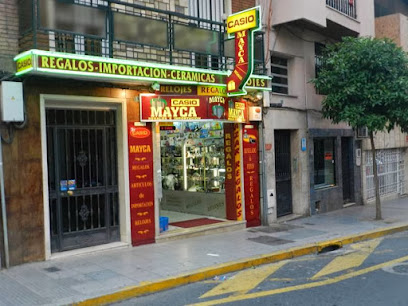
ALE-HOP
Explore ALE-HOP in Huelva for unique gifts and local crafts that embody the spirit of your travels, perfect for souvenirs and mementos.
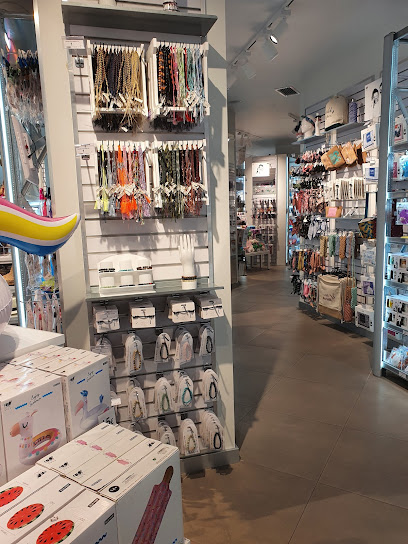
Bazar Suerte
Explore Bazar Suerte, Huelva's enchanting novelty store filled with unique gifts and local treasures that embody the spirit of Spain.
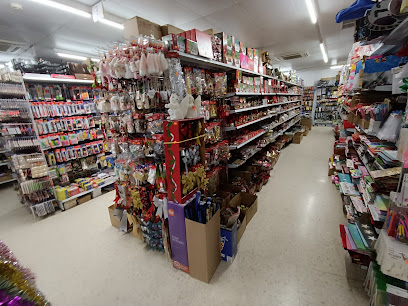
Más de Huelva que un choco
Discover authentic souvenirs and local crafts at Más de Huelva que un choco, your go-to souvenir store in Huelva, Spain.
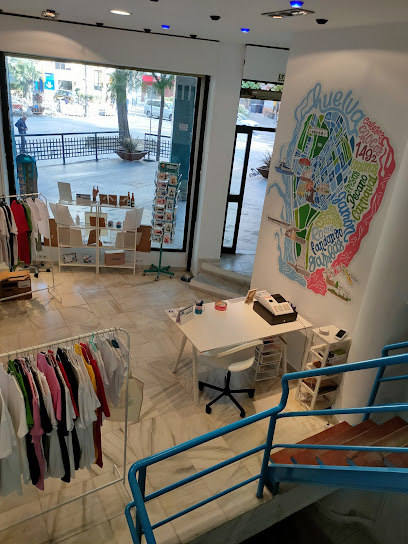
Natura
Discover unique gifts and local craftsmanship at Natura, a charming gift shop in the heart of Huelva, perfect for souvenirs and stylish finds.
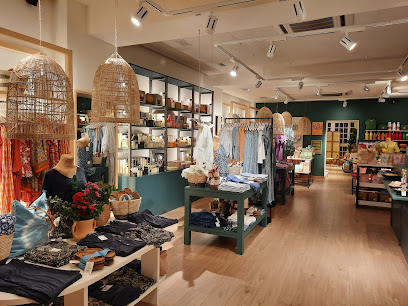
Souvenirs Huelva
Discover the essence of Huelva with unique souvenirs and local crafts at Souvenirs Huelva, where every item tells a story.
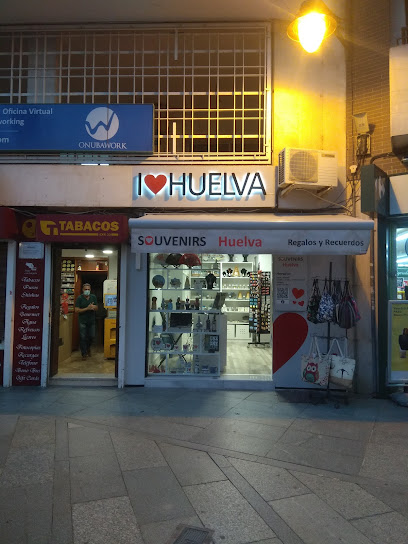
El Detallito
Explore El Detallito in Huelva for unique souvenirs, custom t-shirts, and delightful toys, capturing the spirit of your visit.
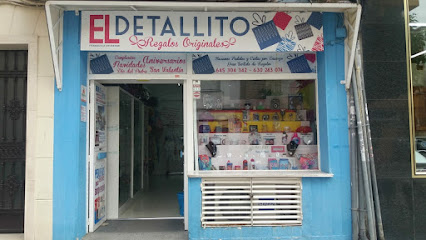
La Cúpula del Trueno
Discover unique collectibles, comics, and gifts at La Cúpula del Trueno, Huelva's ultimate destination for fans and tourists alike.
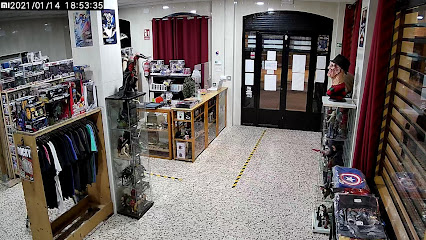
Essential bars & hidden hideouts
Bar Restaurante Juan José
Experience the heart of Spanish cuisine at Bar Restaurante Juan José in Huelva, where tradition meets flavor in a vibrant atmosphere.
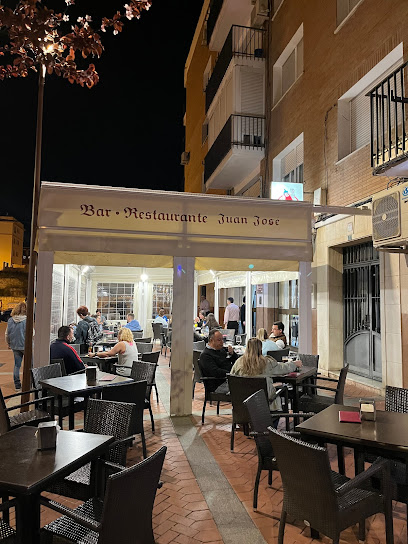
Restaurante Azabache
Experience authentic Andalusian flavors at Restaurante Azabache in Huelva, a must-visit tapas bar for every culinary enthusiast.
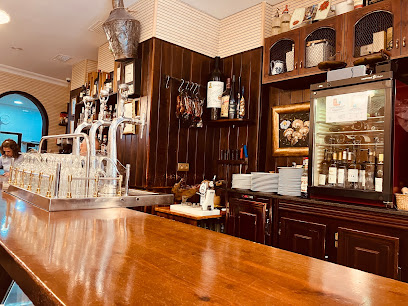
Bar La Tribu
Savor authentic tapas and local wines at Bar La Tribu, a vibrant culinary gem in Huelva, Spain, perfect for every foodie adventurer.
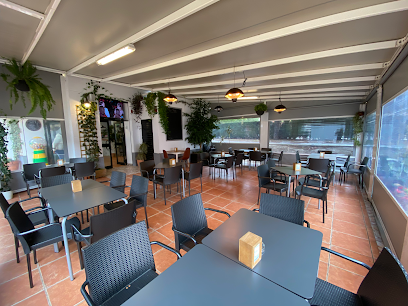
Mandala Mirador Huelva
Discover the vibrant nightlife of Huelva at Mandala Mirador, a premier live music bar offering unforgettable performances and a lively atmosphere.
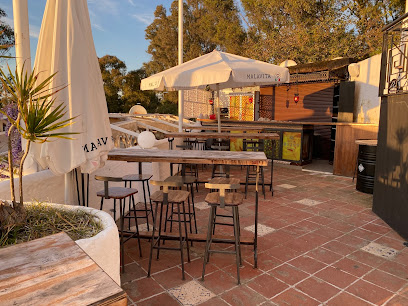
Kalaka Vinos y Tapas
Experience the authentic taste of Andalusia with exquisite tapas and wines at Kalaka Vinos y Tapas in Huelva.
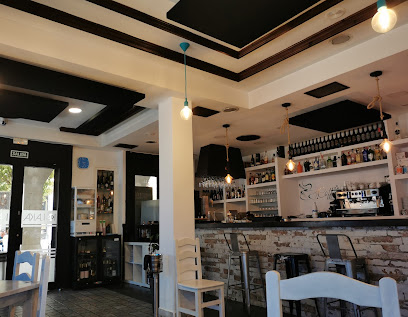
The Red Lion (Irish pub) - Huelva
Experience the lively atmosphere and Irish hospitality at The Red Lion, a premier pub in Huelva offering live music, cocktails, and more.
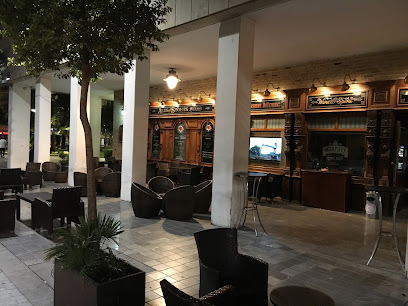
Terrace-Bar La Hispanidad
Discover authentic Spanish flavors at Terrace-Bar La Hispanidad, a charming tapas bar in Huelva offering a delightful culinary experience.
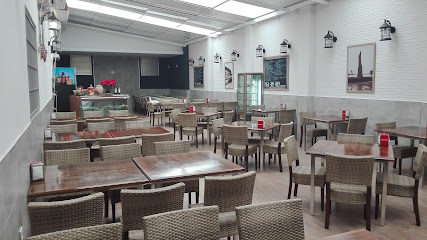
Berdigón 14 Bar
Discover Berdigón 14 Bar, a lively cocktail bar in Huelva serving innovative drinks and delicious tapas, perfect for tourists and locals alike.
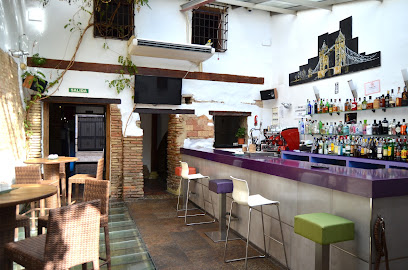
Bar Paco Moreno
Experience authentic Andalusian tapas and vibrant local culture at Bar Paco Moreno in Huelva, a must-visit for every traveler.
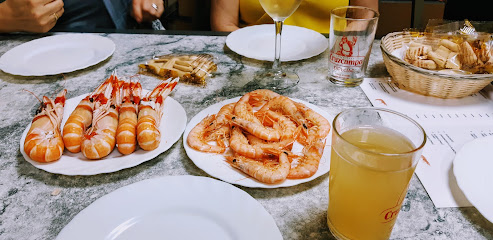
Bar La Estrella
Discover the vibrant ambiance and delicious tapas at Bar La Estrella, a top culinary destination in Huelva, Spain.
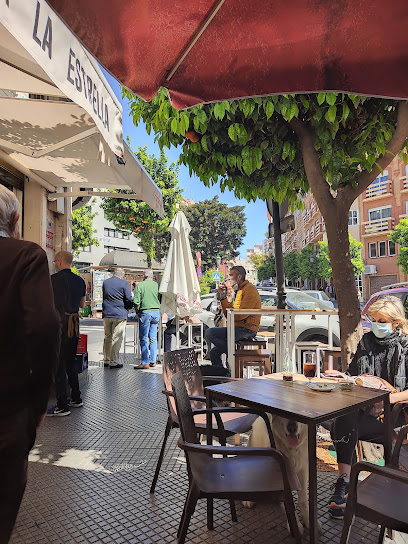
Ziaro Bar
Discover the flavors of Spain at Ziaro Bar, a lively tapas bar in Huelva offering an authentic dining experience with a variety of delicious small plates.
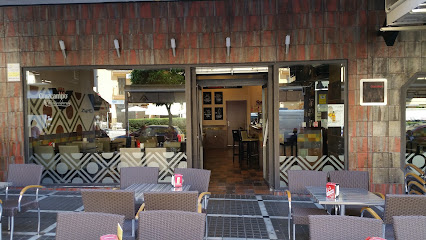
Bar Cosas Buenas
Explore the vibrant flavors of Huelva at Bar Cosas Buenas, where authentic tapas and friendly service create an unforgettable dining experience.
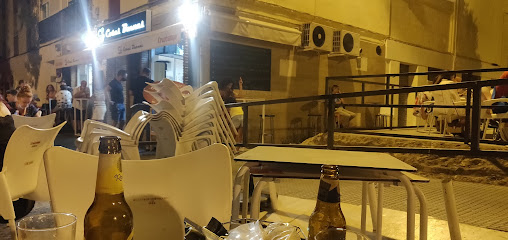
Pub Sherland
Discover the heart of Ireland in Huelva at Pub Sherland, where great food and lively atmosphere meet.
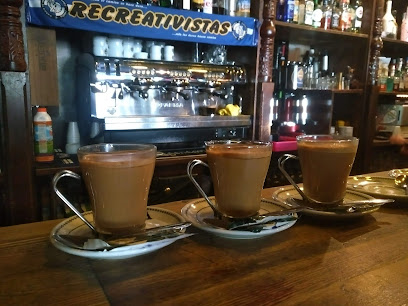
Bar Tapería Entre Amigos
Discover the authentic taste of Spain at Bar Tapería Entre Amigos, where delicious tapas and a lively atmosphere await you.
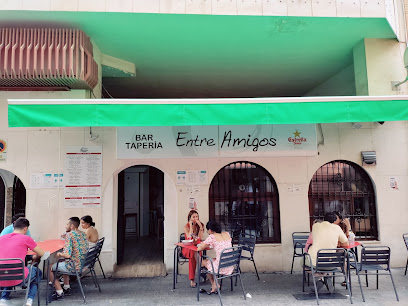
Local Phrases
-
- HelloHola
[oh-lah] - GoodbyeAdiós
[ah-dyohs] - YesSí
[see] - NoNo
[noh] - Please/You're welcomePor favor/De nada
[por fah-vor/deh nah-dah] - Thank youGracias
[grah-thyahs] - Excuse me/SorryPerdón/Lo siento
[pehr-dohn/loh syen-toh] - How are you?¿Cómo estás?
[koh-moh ehs-tahs] - Fine. And you?Bien. ¿Y tú?
[byen. ee too] - Do you speak English?¿Hablas inglés?
[ah-blahs een-glehs] - I don't understandNo entiendo
[noh ehn-tyen-doh]
- HelloHola
-
- I'd like to see the menu, pleaseMe gustaría ver la carta, por favor
[meh goos-tah-ree-ah behr lah kahr-tah, por fah-vor] - I don't eat meatNo como carne
[noh koh-moh kahr-neh] - Cheers!¡Salud!
[sah-lood] - I would like to pay, pleaseMe gustaría pagar, por favor
[meh goos-tah-ree-ah pah-gahr, por fah-vor]
- I'd like to see the menu, pleaseMe gustaría ver la carta, por favor
-
- Help!¡Ayuda!
[ah-yoo-dah] - Go away!¡Vete!
[veh-teh] - Call the Police!¡Llama a la Policía!
[yah-mah ah lah poh-lee-see-ah] - Call a doctor!¡Llama a un médico!
[yah-mah ah oon meh-dee-koh] - I'm lostEstoy perdido
[ehs-toy pehr-dee-doh] - I'm illEstoy enfermo
[ehs-toy ehn-fehr-moh]
- Help!¡Ayuda!
-
- I'd like to buy...Me gustaría comprar...
[meh goos-tah-ree-ah kohm-prahr] - I'm just lookingSolo estoy mirando
[soh-loh ehs-toy meer-ahn-doh] - How much is it?¿Cuánto cuesta?
[kwan-toh kwehs-tah] - That's too expensiveEsto es demasiado caro
[ehs-toh ehs deh-mah-syah-doh kah-roh] - Can you lower the price?¿Puedes bajar el precio?
[pweh-dehs bah-hahr ehl pree-see-oh]
- I'd like to buy...Me gustaría comprar...
-
- What time is it?¿Qué hora es?
[keh oh-rah ehs] - It's one o'clockEs la una en punto
[ehs lah oo-nah ehn poon-toh] - Half past (10)Media (10)
[meh-dee-ah (deh-eez)] - MorningMañana
[mah-nyah-nah] - AfternoonTarde
[tahr-deh] - EveningNoche
[noh-cheh] - YesterdayAyer
[ah-yehr] - TodayHoy
[oy] - TomorrowMañana
[mah-nyah-nah] - 1Uno
[oo-noh] - 2Dos
[dohs] - 3Tres
[trehs] - 4Cuatro
[kwah-troh] - 5Cinco
[theen-koh] - 6Seis
[says] - 7Siete
[syeh-teh] - 8Ocho
[oh-choh] - 9Nueve
[nweh-veh] - 10Diez
[dyehth]
- What time is it?¿Qué hora es?
-
- Where's a/the...?¿Dónde está...?
[dohn-deh ehs-tah] - What's the address?¿Cuál es la dirección?
[kwal ehs lah dee-rehk-syon] - Can you show me (on the map)?¿Puedes enseñarme (en el mapa)?
[pweh-dehs ehn-seh-nyahr-meh (ehn el mah-pah)] - When's the next (bus)?¿Cuándo es el próximo (autobús)?
[kwan-doh ehs ehl proh-kshee-moh (ow-toh-boos)] - A ticket (to ....)Un billete (a ...)
[oon bee-lyeh-teh (ah ...)]
- Where's a/the...?¿Dónde está...?
History of Huelva
-
Huelva's history dates back to ancient times, with evidence of human settlement since the Bronze Age. The city was an important center for the Tartessians, an ancient civilization that thrived in the region due to its rich mineral resources. Artifacts and ruins from this era, such as the Dolmen de Soto, provide a glimpse into the early life in Huelva.
-
The strategic location of Huelva attracted the Phoenicians and later the Greeks, who established trading posts in the area. These ancient mariners brought with them their own cultures and technologies, significantly influencing the local populace. The remains of these ancient settlements can still be seen, particularly in the archaeological site of La Joya.
-
Under Roman rule, Huelva became known as Onuba Aestuaria and flourished as a major port city. The Romans exploited the region's wealth of minerals, particularly copper and silver. Architectural and infrastructural developments such as roads, aqueducts, and villas are still visible today, offering a window into the city's prosperous Roman period.
-
Following the fall of the Roman Empire, Huelva came under Visigothic control before being conquered by the Moors in the 8th century. The city, known as Walbah during Moorish rule, experienced significant cultural and architectural advancements. The influence of Islamic architecture is evident in the remaining structures and urban layout.
-
Huelva was recaptured by Christian forces in 1238 during the Reconquista. The city underwent significant changes as it was integrated into the Kingdom of Castile. Many of the city's churches, such as the Church of San Pedro, were built during this period, showcasing the Gothic and Mudéjar architectural styles that characterized the era.
-
The 15th century marked a pivotal moment in Huelva's history with the voyages of Christopher Columbus. The nearby Monastery of La Rábida is where Columbus sought support for his expedition to the New World. The city played a crucial role in the Age of Discovery, with the port of Palos de la Frontera, just outside Huelva, being the departure point for Columbus's first voyage in 1492.
-
The 19th century brought significant industrial growth to Huelva, driven by the exploitation of the Rio Tinto mines. British companies invested heavily in the region, leading to the development of infrastructure and the modernization of the city. The British legacy is still visible in the cityscape, particularly in the Queen Victoria District, which was built to house British miners.
-
In the 20th century, Huelva continued to grow and modernize. The city's rich cultural heritage is celebrated through numerous festivals and events, such as the Colombinas, which commemorate Columbus's departure to the New World. Huelva’s cultural institutions, including the Museum of Huelva and various art galleries, preserve and showcase the city's diverse historical legacy.
Huelva Essentials
-
Huelva is located in the southwestern part of Spain, in the Andalusian region. The nearest major airport is Seville Airport (SVQ), approximately 100 kilometers away. From Seville, you can take a train or a bus to Huelva, both of which provide regular services. The train journey takes about 1.5 hours, while the bus ride is around 2 hours. Additionally, Huelva has a smaller regional airport, Huelva Airport (HUQ), which serves limited domestic flights. For travelers coming from Portugal, Huelva is about a 1.5-hour drive from Faro Airport (FAO) in the Algarve region.
-
Huelva has a well-connected public transportation system that includes buses and taxis. The local bus network, operated by EMTUSA, covers most parts of the city and surrounding areas. Taxis are readily available and can be hailed on the street or booked via phone. For those looking to explore the region, renting a car is a convenient option, as it allows for greater flexibility. Biking is also popular, especially along the scenic routes near the coast. The city is quite walkable, with many attractions and amenities within walking distance.
-
The official currency in Spain is the Euro (EUR). Credit and debit cards are widely accepted in Huelva, including in hotels, restaurants, and shops. However, it is advisable to carry some cash for smaller establishments, markets, and rural areas. ATMs are plentiful and can be found throughout the city. Currency exchange services are available at banks and exchange bureaus, though it is often more convenient to withdraw Euros directly from an ATM using a foreign card.
-
Huelva is generally a safe city for tourists, with low levels of violent crime. However, like any urban area, petty crimes such as pickpocketing can occur, especially in crowded places like markets and public transport. It is advisable to keep an eye on your belongings and avoid displaying valuable items. Areas like El Torrejón and El Higueral have higher crime rates and should be visited with caution. Stick to well-lit, busy areas at night, and always be aware of your surroundings.
-
In case of emergency, dial 112 for immediate assistance, which connects you to police, fire, and medical services. The main hospital in Huelva is Juan Ramón Jiménez Hospital, which provides comprehensive medical care. Pharmacies are widely available for minor health issues and over-the-counter medications. It is recommended to have travel insurance that covers medical emergencies. English-speaking assistance can be found at tourist information centers and larger hotels.
-
Fashion: Do dress comfortably and stylishly. Light, breathable clothing is recommended due to the warm climate. Avoid overly revealing attire in religious sites. Religion: Do respect local customs and traditions. When visiting churches, dress modestly and observe silence. Public Transport: Do validate your ticket before boarding. Don’t eat or drink on public transport. Greetings: Do greet people with a friendly 'Hola' or 'Buenos días/tardes'. A handshake is common for formal introductions. Eating & Drinking: Do try local dishes like jamón ibérico and gambas de Huelva. Don’t rush meals; dining is a social activity in Spain.
-
To experience Huelva like a local, visit the Mercado del Carmen, a bustling market where you can buy fresh seafood, fruits, and local delicacies. Engage with locals at tapas bars, especially around Plaza de las Monjas. Don’t miss the annual Fiestas Colombinas, celebrating Christopher Columbus’s departure for the New World from Huelva. For nature enthusiasts, the nearby Doñana National Park offers breathtaking landscapes and wildlife. Additionally, taking a stroll along the Muelle del Tinto, a historic pier, provides stunning views of the river and is a favorite among locals.
Trending Landmark in Huelva
-
Muelle de Riotinto
-
Monumento a Colón
-
Columbus House
-
Monumento a la Virgen del Rocío
-
Estatua de Cristóbal Colón
-
Plaza de las Monjas
-
Museo de Huelva
-
Plaza de las Monjas Huelva
-
Barrio Obrero
-
Mora Claros Palace
-
Monumento a los Descubridores
-
Santuario De Nuestra Señora De La Cinta
-
Muelle Garden
-
Fuente Vieja
-
Castillo de Moguer
Nearby Cities to Huelva
-
Things To Do in Seville
-
Things To Do in Faro
-
Things To Do in Cádiz
-
Things To Do in Ronda
-
Things To Do in Évora
-
Things To Do in Badajoz
-
Things To Do in Casemates Square
-
Things To Do in Gibraltar
-
Things To Do in Main Street
-
Things To Do in Moorish Castle
-
Things To Do in Queensway Quay Marina
-
Things To Do in Alameda Botanic Gardens
-
Things To Do in Catalan Bay
-
Things To Do in St. Michael's Cave
-
Things To Do in Gorham's Cave Complex













